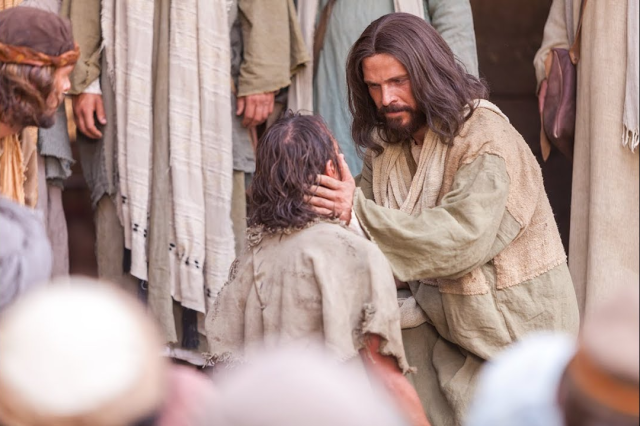
20 February 2023 – Mark 9:14-29
Having come down from the Mount of Transfiguration with Peter, James and John, Jesus finds the rest of the disciples who, surrounded by a large crowd, are in a deep discussion with some scribes, the experts in Jewish law.
Jesus wants to know what they are arguing about. A man comes forward and describes the terrible situation his son is experiencing because of an evil spirit that his disciples have failed to drive out. Reading the passage with contemporary eyes, it is possible for us to see in the boy’s symptoms a kind of epileptic fit. It is also understandable that people in those days saw in them a kind of diabolic possession. It may also be that an epileptic is possessed by an evil spirit.
The Gospel story outlines a spiritual journey to be
be accomplished through two moments. The first is that of this father. This man, who for years and years has been grappling with the evil that torments his son, this man who has tried everything to resolve the situation, even attempting to resort to the exorcistic power of Jesus, but without achieving results, does not give up; he still dares to plead: “But if you can do anything, have mercy on us and help us.” What does this father teach us by his stubborn perseverance? Love for his son. Here is the first stage we must reach: the persistence of evil must not nullify in us the love for people, it must not nullify the sense of solidarity and dedication. We must not allow the presence of evil to make us incapable of love. When love is lacking, hope, striving, closeness, commitment are lacking.
The second moment to reach: faced with the obstinate persistence of evil, we must not limit ourselves to questioning the Lord, his will, his possibilities (If you can), we must first and foremost question ourselves on the quality of our faith: “Jesus said to him: If you can! Everything is possible for those who believe. Faith is not only bringing others to Jesus, faith is also and first of all opening ourselves to Jesus and counting on Him unconditionally. So to go from: “All right, I accept what you want and do” to “Thy will be done! I do not merely accept your will with a certain surrender, but even seek it, desire it, invoke it, so much do I trust you’.
For good workers…
Concerning faith, we must recognise that we too, like that father, must always plead: “I believe; help my unbelief!”
That is, I believe as far as I can, I believe as far as I know, but help me! Help my
my apistia, my ‘lack of faith’, this is the exact translation from the Greek.
P JOBY KAVUNGAL RCJ

